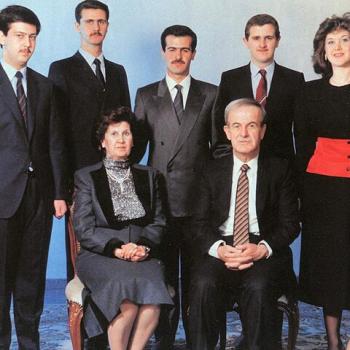 As a Hollywood screenwriter, script consultant and cinema professor, you're surrounded with stories and how they impact people on a regular basis. Why are stories so important?
As a Hollywood screenwriter, script consultant and cinema professor, you're surrounded with stories and how they impact people on a regular basis. Why are stories so important?
Aristotle writes in his Poetics that stories are important because they serve two primal instincts in us, namely, the instinct for imitation and the instinct for harmony. We learn by imitation, and in stories, we have the opportunity to learn many more vital lessons than our own life experience could teach us. In stories, we learn vicariously through beloved characters, which means with a lot more enjoyment than the school of hard knocks of our own lives. The instinct for harmony drives us to seek in stories all of the things that real life can't give us—excellence of craft and high stakes, intimate access to the lives of others, intelligibility of their choices and motives, unity of plot such that all the boring or irrelevant parts are edited out, and satisfying resolution. In a very real sense, we need stories to teach us how to live. We enjoy the lessons because stories delight us with their artistry.
Secondly, Aristotle says that a society needs stories that lead its people to cathartic experiences of compassion and fear of evil. We should stumble out of dramatic plays and movies asking, "How could this thing have happened? What was the source of all this trouble?" while all the while feeling, "There but for the grace of God go I."
If I didn't have Aristotle's brilliance to lean on, I'd probably say it simpler as stories matter because they give us poles of heroism and nobility. In taking us on exhilarating adventures, they dare us to move past the banality and complacency of our everyday lives, and prepare us for the way of suffering that is eventually every human story.
What are the elements of a good story?
There are many ways to answer this question. We could say with the ancient Greeks that a good story has something for the mind (logos), something for the heart (pathos) and something for the imagination (ethos). We could speak of a story in a moral sense as something that communicates a worthy truth in a way that elicits compunction. Or we could speak of it using the work of the original populist storyteller, Aesop, as a meter. His stories have lasted thousands of years because they are very economical in terms of language and events, are completely unified by necessity, have high stakes, ironic consequences and are sprinkled with creativity and humor.
How about in Aristotle's view? A good dramatic story first and foremost needs a working plot.That means it has a beginning that is intriguing and complete, a middle that complicates all the conflicts of the beginning, and an ending that ties up all the conflicts and feels like a whole new beginning. The plot should be a sequence of irrevocable choices—what Aristotle calls "men in action." Next, a good story needs to have lots of reversals and should end with a surprise. After plot, the next most important thing is a basically moral and accessible main character who undergoes a dual interior and external journey. He or she moves from good to bad fortune, mainly through weakness or folly, and then comes out, like Ulysses, better for having undergone all the suffering. The next most important part of a story is theme—that is, the answer to the question, "What is this story really about? What is the universal truth that underpins this tale that will on some level be the story of people of every time and place?" Next, Aristotle wants good dialogue that is replete with literary style and subtext. Finally, a good story has some kind of spectacle. Spectacle is the fun factor for the audience. Sadly, too many Hollywood movies get this order upside down.
Where would you say our culture stands regarding good storytellers and stories?
In his wonderful book, Story, which is pretty much the industry standard text on the subject, Robert McKee says that our society has just about lost the ability to tell a good story. McKee attributes this to the academy basically abandoning classical storytelling principles in favor of more culturally-based records of experiences. He also notes that moral relativism in the overall society makes it very hard to tell stories. It's a problem for the storyteller if the audience can't agree which values are worth living and dying for. Most romantic comedies today don't know what they really want for the characters. Marriage? Family? The white picket fence, really? Imagine if John Wayne's rousing words to his fellow Green Berets ended up devolving into an existential crisis speech about the ethical problems posed by unabashed patriotism in support of ultimately corrupt human governments.




